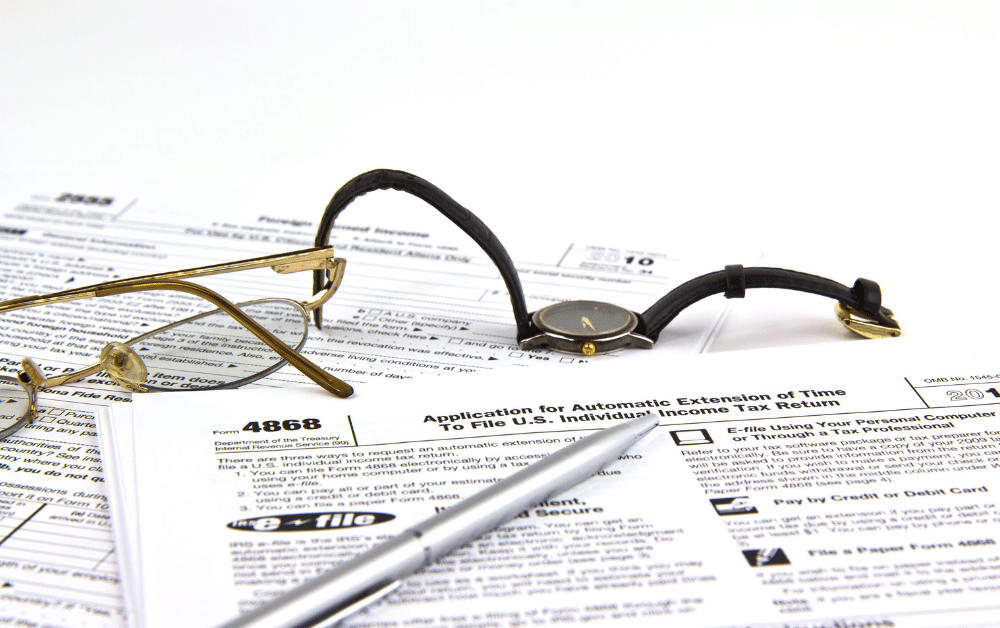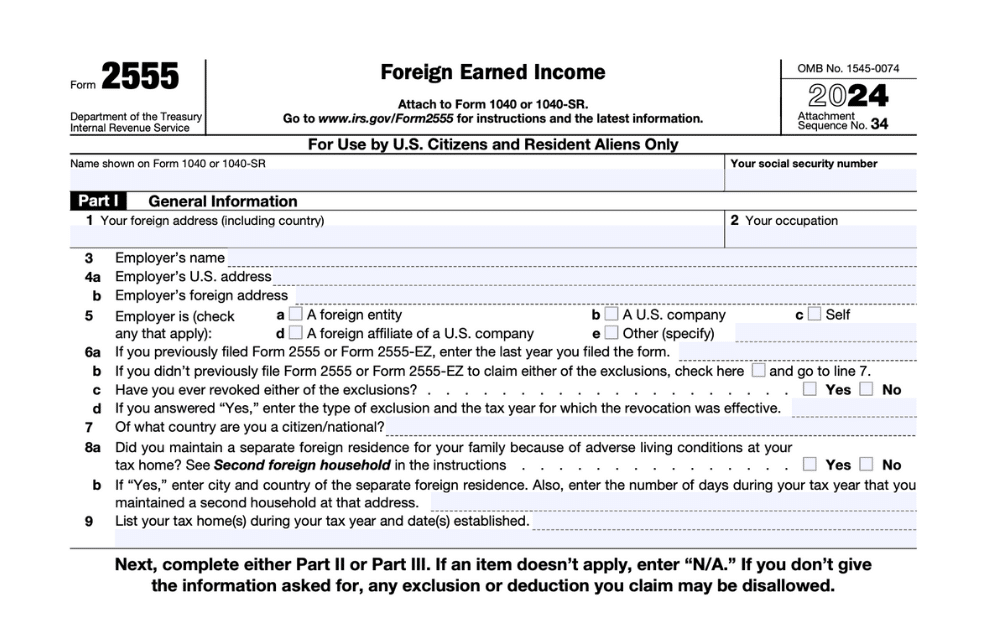What Happens When You File Late Taxes as a US Expat: Penalties, Extensions & Solutions

- Expat Filing Deadlines and Extensions
- What Penalties Apply When Filing Late
- The Bigger Risk: Losing Expat Tax Benefits
- Strategic Solutions by Situation
- How to Minimize Late Filing Impact
- Multiple Year Catch-Up
- State Tax Considerations for Late Filers
- Penalty Relief Options
- Long-Term Compliance Strategy
- Next Steps: Getting Back on Track
- Don't Let Late Filing Become a Pattern
If you’re filing your US expat taxes late, here’s what happens: You’ll face specific penalties only if you owe taxes, but the good news is that most US expats qualify for an automatic two-month extension to June 15. Many end up owing $0 after applying expat protections. The bigger risk isn’t penalties—it’s potentially losing valuable tax benefits like the Foreign Earned Income Exclusion.
The reality for most expats: If you don’t owe taxes (which applies to most expats), there’s no penalty for filing late. However, missing key deadlines can jeopardize your eligibility for the Foreign Earned Income Exclusion, which could cost you thousands in future years.
Bottom line: Understanding expat-specific deadlines, penalty calculations, and extension strategies will help minimize any financial impact and protect your long-term tax benefits. Here’s what you need to know to get back on track quickly.
Expat Filing Deadlines and Extensions
Automatic Two-Month Extension
As an American living abroad, you automatically receive an extension to June 15 for filing your tax return—no forms required. This applies if your principal place of business or post of duty is outside the US on the regular April 15 deadline.
While you get extra time to file, any taxes owed are still due by April 15 to avoid interest charges.
Additional Extensions Available
Form 4868 Extension: You can request an additional extension to October 15 by filing Form 4868 before June 15. This gives you the maximum possible time to prepare complex returns.
Form 2350 Extension: For expats who can’t meet residency tests by the regular deadline, Form 2350 can extend the deadline even further, sometimes into the following year.
Even if you’re not sure you’ll owe taxes, filing an extension protects you from failure-to-file penalties and preserves your ability to claim expat benefits.
What Penalties Apply When Filing Late
Good News: Most Expats Face No Penalties
If you’re due a refund or owe $0, there are no penalties for filing late. The IRS only penalizes late filing when you owe taxes.
If you qualify for expat protections, the Foreign Earned Income Exclusion and the Foreign Tax Credit could result in most expats having no US tax liability.
Penalties That Do Apply
Failure-to-File Penalty:
- 5% of unpaid taxes per month (or partial month)
- A maximum of 25% of unpaid taxes
- Only applies if you owe money
Failure-to-Pay Penalty:
- 0.5% of unpaid taxes per month
- A maximum of 25% of unpaid taxes
- Applies even if you file on time but don’t pay
Combined Penalty Cap:
When both apply, the total is capped at 5% per month.
Example Calculation:
- Tax owed: $5,000
- Filed 3 months late
- Failure-to-file: $750 (5% × 3 months × $5,000)
- Failure-to-pay: $75 (0.5% × 3 months × $5,000)
- Total penalties: $825
Interest Charges
Interest accrues on unpaid taxes from the original due date (April 15) at the current federal rate plus 3%. For 2025, this rate is approximately 8% annually.
The Bigger Risk: Losing Expat Tax Benefits
Foreign Earned Income Exclusion (FEIE) at Risk
Critical deadline: You must file Form 2555 by your extended due date to claim the FEIE.
Consequences of missing the deadline:
- IRS can revoke your FEIE election
- Once revoked, you cannot use it for 5 years
- This could cost you tens of thousands in taxes
Example: If you earn $100,000 annually and lose FEIE eligibility for 5 years, you could pay an additional $60,000+ in US taxes.
Learn more about qualifying for the Foreign Earned Income Exclusion.
Foreign Tax Credit Timing
While the Foreign Tax Credit is more forgiving, late filing can:
- Delay your ability to claim the credit
- Complicate carryback and carryforward calculations
- Create issues with foreign tax timing differences
Strategic Solutions by Situation
Corporate Expats: Managing Complex Deadlines
Common challenges:
- Waiting for foreign employer tax documents
- Stock option timing complications
- Housing allowance calculations
Solutions:
- File Form 4868 extension by June 15
- Estimate taxes based on the previous year to avoid penalties
- Work with tax professionals who understand corporate expat packages
Entrepreneur Expats: Self-Employment Complications
Unique considerations:
- Quarterly estimated payments are still due on time
- FEIE cannot reduce self-employment tax
- Foreign business reporting requirements
Strategy:
- Pay estimated self-employment tax by deadlines, even if income tax is excluded
- File extensions while gathering foreign business documentation
- Consider foreign business structures for future years
Digital Nomads: Multi-Country Complications
Timing challenges:
- Moving between countries during the tax year
- Difficulty meeting the 330-day physical presence test
- Multiple foreign tax obligations
Approach:
- Use the bona fide residence test if possible for more flexibility
- File extensions to ensure accurate day-counting
- Coordinate filing with foreign tax obligations
How to Minimize Late Filing Impact
Immediate Action Steps
- Determine if you owe taxes using previous year information or quick calculations
- Pay any estimated taxes owed to stop interest accumulation
- File an extension if you need more time to prepare accurately
- Gather foreign tax documents to maximize credits and exclusions
Document Collection Strategy
Priority documents:
- Foreign income statements and pay stubs
- Foreign tax payment records and certificates
- Bank statements showing foreign account balances
- Any US source income documents
Missing documents:
- Request wage and income transcripts from the IRS
- Contact foreign employers for duplicate income statements
- Use reasonable estimates with documentation of methodology
Multiple Year Catch-Up
If you’re behind multiple years, consider the Streamlined Filing Compliance Procedures if:
- Your non-compliance was non-willful
- You can file the last 3 years of returns
- You’re not currently under IRS examination
If you’re only behind one year, File normally with appropriate extensions rather than using streamlined procedures.
State Tax Considerations for Late Filers
Establishing Non-Residency
Before moving abroad:
- File final state tax returns
- Establish a clear intent to abandon state residency
- Document foreign residency establishment
For late filers:
- Some states may have different deadlines or penalties
- Consider amended state returns if the residency status changed
- Address any state-specific extension requirements
Get the Free Download That Makes Filing Taxes Simple

Technology and Tools for Late Filing
When you’re filing late, the right technology can save you weeks of stress and potential penalties. Here are the specific digital tools that make the biggest difference for expats catching up on taxes.
1. IRS Online Account – Your Tax Command Center.
Create your IRS online account for instant access to:
- Current balance: See exactly what you owe, including penalties and interest
- Payment history: Confirm the IRS received your payments
- Account transcripts: View all tax activity for recent years
- Payment plans: Set up installment agreements if you owe money
- Notices and letters: Access IRS correspondence electronically
Why this matters for late filers: Instead of calling and waiting on hold, you get immediate answers about your account status.
2. Where’s My Refund Tool
Track your refund status using Where’s My Refund or the IRS2Go mobile app:
- 24-hour updates: Check status within 24 hours after e-filing
- Three-stage tracking: Return received → Refund approved → Refund sent
- Mobile convenience: Get updates on your phone anywhere in the world
3. Electronic Filing Options That Work for Expats
IRS Free File (Income up to $84,000) Use IRS Free File until October 15 for:
- Free federal tax preparation and e-filing
- Extension requests through the same platform
- Direct deposit setup for faster refunds
- Expat benefit: Available through October 15, perfect for late filers
IRS Direct File (25 participating states). Try IRS Direct File if you qualify:
- File directly with the IRS for free
- Available in English and Spanish
- Works on mobile devices
- Limitation: Only available in certain states and for simple returns
Penalty Relief Options
First-Time Penalty Abatement:
If you’ve had a clean filing history for the past three years, the IRS may waive penalties upon request.
Reasonable Cause Relief:
Document circumstances beyond your control that caused late filing:
- Natural disasters affecting your location
- Serious illness or family emergencies
- Unavoidable delays in receiving foreign tax documents
Long-Term Compliance Strategy
Establishing Annual Filing Routine:
Document Organization:
- Set up digital folders for each tax year
- Collect documents throughout the year
- Maintain spreadsheets for foreign account balances
Tax Planning:
- Review FEIE vs Foreign Tax Credit strategy each December
- Assess whether to maintain or change tax elections
- Plan major financial decisions around tax implications
- Consider the timing of income and deductions
Professional Support Benefits:
- Expertise in expat-specific deadline management
- Proactive extension filing when needed
- Strategic planning to minimize future late filing risks
When to Seek Help:
- Multiple countries or complex residency situations
- Significant business or investment income
- History of filing complications or IRS correspondence
Next Steps: Getting Back on Track
If you’re currently late:
- Assess your tax liability using available information
- File an extension if you need more time for accuracy
- Pay any estimated taxes to minimize interest charges
- Gather documentation systematically
- Consider professional help for complex situations
For future compliance:
- Set up calendar reminders for key deadlines
- Establish relationships with foreign tax advisors for documentation
- Consider quarterly check-ins with tax professionals
- Maintain organized records year-round
Don’t Let Late Filing Become a Pattern
The stress of filing late can be overwhelming, but understanding your options and taking swift action can minimize any negative impact. Most importantly, establishing good filing habits now will prevent future complications and protect your valuable expat tax benefits.
If you’re ready to get caught up and establish a solid filing routine, contact us, and one of our customer champions will gladly help. No matter how late your filing may be, we can help. You’ll have peace of mind, knowing that your taxes were done right and you’re protected for future years.
If you’re ready to be matched with a Greenback accountant, click the get started button below.
This article is for informational purposes only and should not be considered legal or tax advice. Tax laws are complex and subject to change. Always consult with a qualified tax professional for advice specific to your situation.



